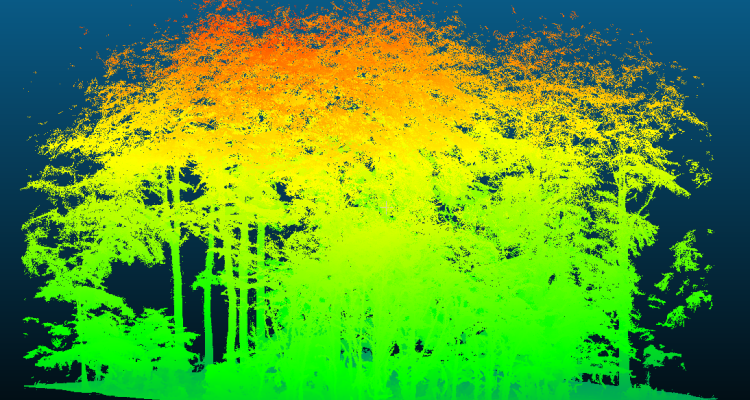
Colloquium
Upsampling LiDAR Point Clouds of Forest Environments using Deep Learning
Abstract
Light Detection and Ranging (LiDAR) has shown great potential in providing high quality data to derive forest parameters. Terrestrial laser scanning (TLS) is seen as the gold standard for the acquisition of detailed three-dimensional (3D) point clouds. Mobile laser scanning (MLS) data is generally faster to acquire and can reduce occlusion effects, but data quality is lower. Deep-learning-based upsampling techniques for 3D point clouds have shown great potential to improve data quality. However, they have mainly been applied to synthetic data and point clouds of single objects, and often use downsampling-upsampling approach. A novel approach is taken in this research by applying the PC2-PU deep learning model on real-scanned MLS data of a forest environment and using TLS data of the same forest as reference. Chamfer Distance (CD) and Hausdorff Distance (HD) metrics improved after upsampling MLS data. Diameter at Breast Height estimates did not improve and were found to underestimate the diameters of the trees compared to estimates based on the original MLS data. The results indicate that upsampling real-scanned point clouds of forest environments is feasible and promising, but additional research is required to use upsampling for improved forest parameter estimations.